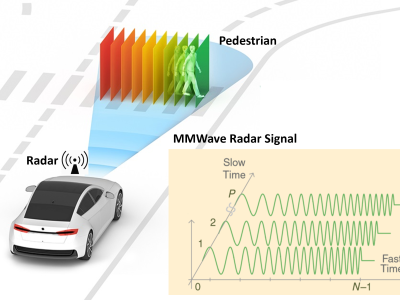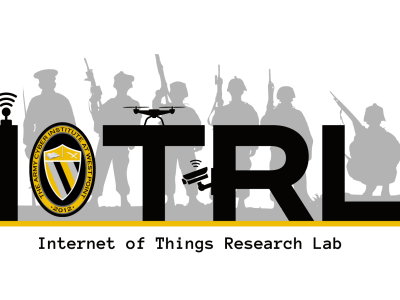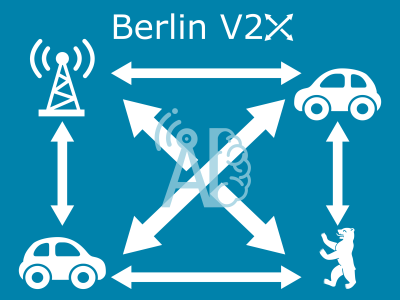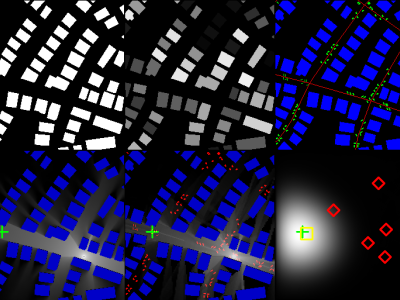CRAWDAD unimi/pmtr

- Citation Author(s):
-
Paolo Meroni (Università degli Studi di Milano)Sabrina Gaito (Università degli Studi di Milano)lena Pagani (Università degli Studi di Milano)Gian Paolo Rossi (Università degli Studi di Milano)
- Submitted by:
- CRAWDAD Team
- Last updated:
- DOI:
- 10.15783/C7BS3T
- Data Format:
 129 views
129 views
- Categories:
Abstract
Dataset of mobility traces collected by Pocket Mobility Trace Recorder devices at University of Milano.
This dataset contains mobility traces from 44 mobile devices at University of Milano. The data was collected in November 2008.
date/time of measurement start: 2008-11-13
date/time of measurement end: 2008-12-01
collection environment: The experiment lasted for 19 days in November 2008. 49 Pocket Mobile Trace Recorders (PMTRs) were distributed to faculty members, PhD students, and technical staff. These people work in offices and laboratories located in a three-floor building, roughly 200x100 m large and take lunches or coffee breaks in a nearby cafeteria. Some of the classes take place in a different building 3.5 Km away. These locations were equipped with fixed PMTRs.
network configuration: The need to observe and record very short contact periods that arise from human mobility motivated the design of a specific custom hardware device for trace recording. Pocket Mobile Trace Recorders (PMTRs) have been designed to operate with beaconing times ranging from 1 sec. to some configurable value, which depends on the mobility environment we wish to observe. The PMTR architecture uses the Cypress CY8C29566 micro-controller and the radio module AUREL, model RTX-RTLP. The radio range has been limited to 10 meters in order to reduce the power consumption and to maintain multi-hop paths between end-systems. This combination allows a very low power consumption that lets the experiments last for the required time with common batteries NiMh, AA 1.2 V. Each PMTR has a 1 MB flash memory where more than 50K contacts can be stored. The PMTR implements a CSMA non-persistent MAC protocol. The local clock value is set at the configuration time. Each PMTR uses a USB interface to communicate with the Pocket Viewer PC, running the Desktop application software, which has been used to configure the devices, collect the recorded data at the end of the experiment, and support data analysis and device monitoring.
data collection methodology: Recorded data was collected at the end of the experiment. Symmetric contacts, that is contacts recorded by both devices approximately at the same time, were kept for analysis; unidirectional contact records were discarded. This resulted in a collection of 11895 contacts between 44 PMTRs.
limitation: This traceset contains mobility traces from 44 mobile devices at University of Milano. The data was collected in November 2008.
hole: At the end of the experiment, 5 PMTRs (with IDs 5, 8, 15, 30 and 35) had not registered any contacts due to hardware failure.
Traceset
unimi/pmtr/txt
Mobility traces collected by Pocket Mobility Trace Recorder devices at University of Milano in November 2008.
- file: pmtr.txt.gz
- description: This traceset contains mobility traces from 44 mobile devices at University of Milano. The data was collected in November 2008.
- measurement purpose: User Mobility Characterization, Positioning Systems, Social Network Analysis, Human Behavior Modeling, Localization, Opportunistic Connectivity
unimi/pmtr/txt Trace
- gz: Mobility traces collected by Pocket Mobility Trace Recorder devices at University of Milano in November 2008.
- configuration: This trace contains contact records from 44 mobile devices. The records were collected at University of Milano in November 2008.
- format: The format of the file is:
id_source id_destination t_start_contact t_end_contact
where times are expressed in seconds, starting from 0 (start of the experiment).
Instructions:
The files in this directory are a CRAWDAD dataset hosted by IEEE DataPort.
About CRAWDAD: the Community Resource for Archiving Wireless Data At Dartmouth is a data resource for the research community interested in wireless networks and mobile computing.
CRAWDAD was founded at Dartmouth College in 2004, led by Tristan Henderson, David Kotz, and Chris McDonald. CRAWDAD datasets are hosted by IEEE DataPort as of November 2022.
Note: Please use the Data in an ethical and responsible way with the aim of doing no harm to any person or entity for the benefit of society at large. Please respect the privacy of any human subjects whose wireless-network activity is captured by the Data and comply with all applicable laws, including without limitation such applicable laws pertaining to the protection of personal information, security of data, and data breaches. Please do not apply, adapt or develop algorithms for the extraction of the true identity of users and other information of a personal nature, which might constitute personally identifiable information or protected health information under any such applicable laws. Do not publish or otherwise disclose to any other person or entity any information that constitutes personally identifiable information or protected health information under any such applicable laws derived from the Data through manual or automated techniques.
Please acknowledge the source of the Data in any publications or presentations reporting use of this Data.
Citation:
Paolo Meroni, Sabrina Gaito, Elena Pagani, Gian Paolo Rossi, unimi/pmtr, https://doi.org/10.15783/C7BS3T , Date: 20081201
















